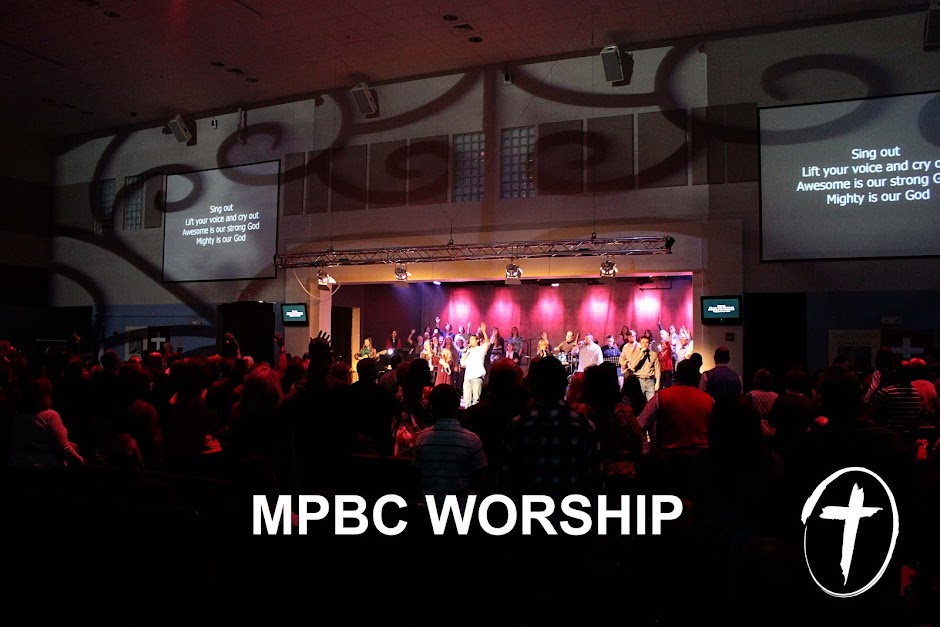I find that among a lot of musicians that actively participate in worship, they speak a lot about good musicianship and playing skillfully for the Lord. Psalm 33:3 says "Sing to him a new song; play skillfully, and shout for joy." What exactly does "play skillfully" mean? Skillfully can mean a lot of things, I think, depending on how you look at it and who you talk to. Martin touched on this is his blog "Is It Worship or Is It a Show?" He made a great point regarding this. He said playing skillfully doesn't necessarily mean you just absolutely shred a guitar neck or piano keys at all times. I couldn't agree more.
The Worship Setting
In the worship setting, playing skillfully goes hand in hand with what I like to call "serving the song". Serving the song means exactly that: serving the song. In worship, the lyrics of the songs and the atmosphere that the instruments and lights create is going to be what draws people in and sets up a meeting with the Lord. When I play, whether it be acoustic or electric guitar, my goal is not to stick out amongst the music, but rather to blend in. A good musician knows how to make his part fit in the rest of the music and is conscious of what is going on around him.
A Good Musician...Who Says??
To many, a good musician is measured by how fast he can play an instrument in soloing, etc., but to me, a good musician is measured by knowing when to play and when NOT to play. What?.....the electric guitar player doesn't play the whole song all the time? Nope. Very seldom do I play the entire song. I think it is crucially important to know when not to play. Sometimes songs just don't call for shredding solos and big crashes. Sometimes the biggest impact on the congregation is something very subtle, and often times less than that; almost silence. Good music has dynamics; it's a roller coaster ride. Think about movies that we watch. All movies have music. The musicians playing the music pieces in these movies understand this perfectly. They know how and when to play to have you sitting on the edge of your seat, and in an instant, they can have you relaxing again. And the beauty of it is that most people don't even realize there is music playing. That's good music. I would argue that spaces in music are as important, if not more so, than a busy rhythm section. Space gives the music room to breathe and create mystery.
Soloing
Soloing can be a touchy subject to some. Soloing is a great tool that can be used to add another dynamic to the music and to bring the song to a climax at it's biggest point. I see people in our congregation worship in a solo section as if it were a massive chorus. Although, it can also be a destructive tool and devastate the purpose behind worship if used incorrectly. This goes back to what I said about playing skillfully doesn't necessarily mean soloing or playing the most complicated scale on an instrument. Does it take a skillful musician to play these type of things? To an extent, yes. But, the knowledge of when to solo and step out makes him a desirable musician and that knowledge is the most important tool in his arsenal. I can't stress this enough. For example, I do have somewhat of a knowledge of guitar modes such as Dorian, Mixolydian, Ionian, etc, but I hardly ever put much thought into it. Don't get me wrong, I use these during our music, but very sparingly. Just because the mode exists and the notes work, doesn't mean all of those notes need to be played. Again, there is something great to be said about space in music.
To wrap up the blog for today, I would like to show you a video of this being demonstrated very well. The first video is Paul Baloche and his band demonstrating teamwork in a band. The second video is by Paul Baloche and a guitar player he uses often, Ben Gowell. Both are very big on this subject and know the importance of serving the song. I think they are brilliant in what they do, These guys do a great job of explaining this further.
Enjoy!
http://www.youtube.com/watch?v=1JZ_IknJcBY
http://youtu.be/Fklcr52NQdA
Justin

No comments:
Post a Comment